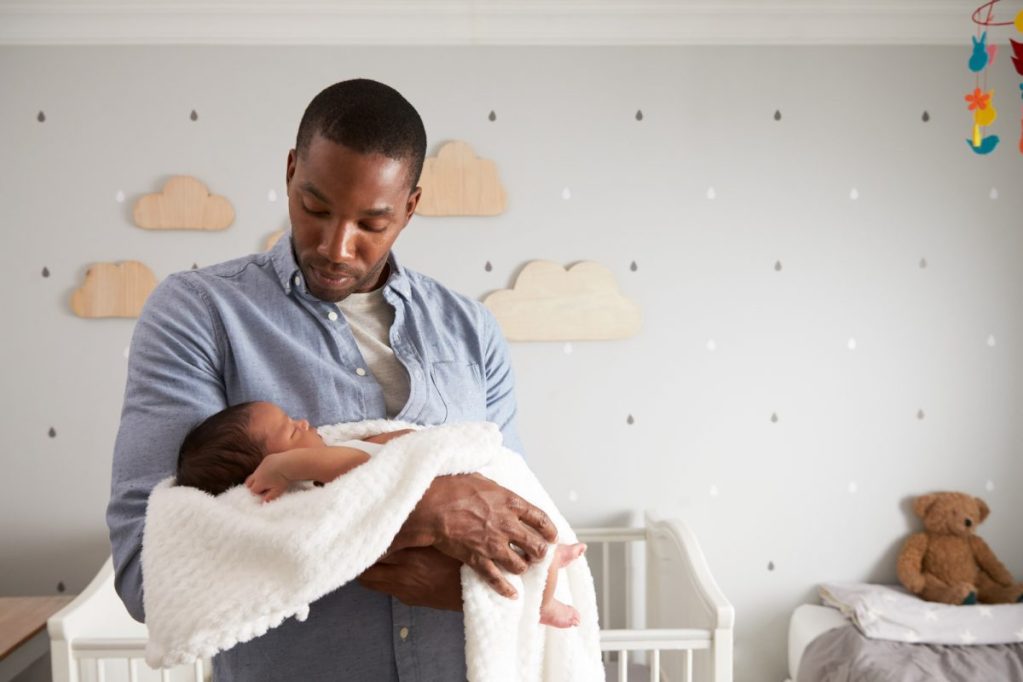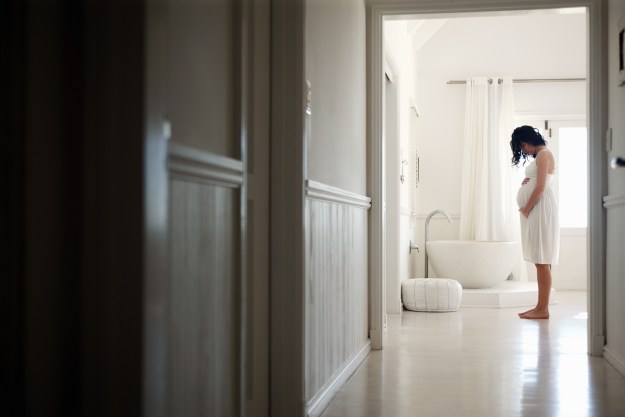
Every parent of a newborn has the same question after their first night with their precious new bundle of joy. When do babies sleep through the night? All it takes is those first sleepless 24 hours to wonder if you are ever going to sleep again. After a few days, you don’t even remember when the last time you slept more than a few hours in one stretch was. We get it. Here’s when babies sleep through the night, so you know when you will be done stumbling around in a zombie-like sleepless fog.
A baby’s sleep schedule
Every baby is different, so if your babe isn’t getting the exact amount of sleep by a certain age, it’s not something to worry about. But there is a little guide to refer to.
Newborns up to 2 months old
Newborns do spend a decent amount of time sleeping. Unfortunately for the parents, it’s not all at night. While babies less than 2 months old snooze up to 18 hours a day, with up to 10 of those hours being prime nighttime sleep hours, it isn’t all at once.
Babies new to this human life get up around every one to three hours if they’re breastfeeding and every three to four hours if formula-fed. That clock starts while they are already back to sleep. It doesn’t count the time it takes you to try to settle back into dreamland.
Babies 2 to 4 months old
Once your bundle is a few months old, they will sleep a few hours less overall. But don’t stress, because those hours are during the day, with up to 10 hours of sleep still at night when most people like to be quiet. Your baby will sleep up to 16 hours a day, with up to six of them during the daytime.
The good news is your baby will start to sleep for slightly longer patches during the night. Instead of waking up every few hours, you might get up to five whole hours of sleep — in one continuous stretch — by this age. And, yes, it’s not a myth, but some babies sleep up to eight hours by this point. If this is you, keep it to yourself for a few more years.
Babies 4 to 6 months old
From 4 to 6 months old, your baby is sleeping up to 16 hours a day, but thankfully, those are shifting a little more to nighttime. During the day, you’ll find your little one napping for up to 5 hours a day (multiple, shorter naps) and up to 11 hours at night.
Babies 6 to 12 months old
Congrats, parents, for making it to 6 months old. While babies start to sleep longer during the night starting at 4 months old, by 6 months old, your chances of a restful night of peace go way up. Call this the time when your baby starts sleeping through the night.
Will you get a full night’s sleep every night from now on? No. But you’ll get anywhere from 6 to 10 hours of sleep consistently, with a solid 6 hours considered a good night’s sleep. By 6 months old and beyond, your baby won’t wake up as much in the night for feedings, will have their night and day confusion under control, and will be able to self-soothe enough to go right back to bed if they wake themselves up.
Tips for helping your baby sleep
Whether it’s their first baby or their fourth, all parents need to keep the little tricks to help get baby to sleep handy in their back pocket.
Stick to a routine
We love a schedule, we love a routine, and we love when things are predictable. So does your baby. If you read them a story, do it every night. If you use a fan for white noise, turn it on every night. Do the same things in order and become a creature of habit when putting your little one to bed.
Keep the bedtime consistent
Try to get them to bed at the same time, and that includes naps. We get that might not be possible every day, but keep the times the same as much as you can, even when traveling.
Ask for help if you need it
If there is a sudden change in your baby during the night, they aren’t sleeping well at all, or it’s been days of something being off with how they sleep (or don’t), it’s OK to talk to their pediatrician. It could be teething time, gas, sleep regression, or something else your sleep-deprived brain couldn’t register.
For parents new and old, first-timers, and seasoned vets, asking when do babies sleep through the night is the million-dollar question. Get your over-caffeinated self to 6 months old, and you’ll start to catch up on some rest. We can’t promise smoother waters from there until your kiddo is grown, but you will get to know what beautiful, hours-long, uninterrupted sleep is again.
Editors' Recommendations
- When do babies start walking? This is what you should expect
- Understanding baby wake windows is the key to better sleep
- When do babies start talking? Should you be concerned if yours isn’t?
- Why do babies growl? Understanding your little one’s weird sounds
- Are baby walkers safe? 5 dangerous reasons you shouldn’t add one to your registry





